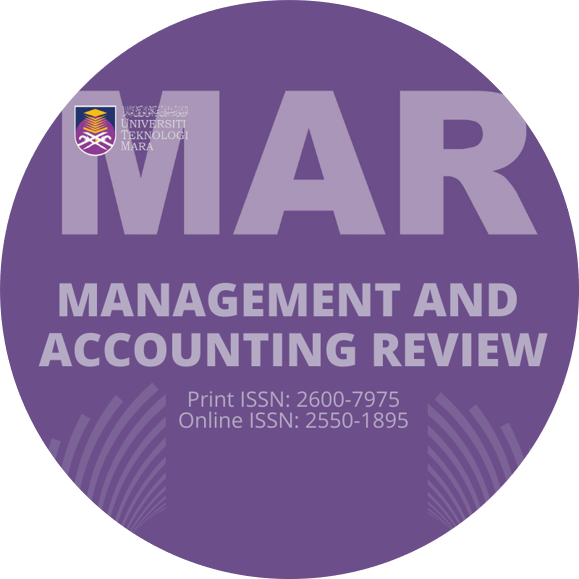Volume 17 No. 3, December 2018
ARTICLE INFO
Article History:
Received: 17 April 2018
Accepted: 27 June 2018
Available online: 31 December 2018
MANAGEMENT AND ACCOUNTING REVIEW, VOLUME 17 NO 3, DECEMBER 2018
Source Waste Separation Behavior among Shah Alam Households
Carol Boon Chui Teoa, Azra Syakira Binti Abdul Karimb, Nur Afieqah Binti Mamudc and Wan Norhanis Hanini Wan Abdul Hamidd
aUniversiti Teknologi MARA
bPutra International College
cKolej Syuen, Malaysia
dBusiness Development Officer, Malaysia
aUniversiti Teknologi MARA
bPutra International College
cKolej Syuen, Malaysia
dBusiness Development Officer, Malaysia
ABSTRACT
One of the main contentious recycling issues in Malaysia is household solid waste management. With solid waste build up and bottlenecks reaching its limit at landfills, local councils face uphill tasks to manage. Solid source waste separation (SWS) for households was first officially enforced across eight states in Malaysia on 1 June 2016. However, Selangor has yet to enforce this system and has left it to be selected local councils to embark on pilot projects. It has been iterated that Selangor which has the largest population in Malaysia should adopt the law on mandatory SWS for households as it is already facing a garbage disposal crisis. Previous studies have been documented on recycling behaviour, but few delve into SWS. This paper examines household behaviour towards SWS intention in Shah Alam. Based on the Theory of Planned Behaviour, influences of attitude (ATT), subjective norms (SN) and perceived behaviour control (PBC) towards SWS were determined. Methodology utilized interviews with two local councils and observations on household recycling behaviour. Survey was administered on 150 households. Using PLS analysis, results indicate ATT and PBC have positive and significant influences on SWS intention while subjective norm was not significant. Findings had some implications on strategies for local councils in managing SWS system.
Keywords: Recycling, source waste separation, attitude, subjective norm, perceived behavioural control
Keywords: Recycling, source waste separation, attitude, subjective norm, perceived behavioural control





